We all know that having an amplifier is essential for all electric guitars. But have you ever wondered how long they will last? Is an amplifier something that will last you a lifetime, or is there something you should know about?
So, how long do guitar amps (solid-state, tube) last? A solid-state amp usually lasts more than 30 years even if you play it every day. Tube amps have a similar lifespan, but they require additional work like re-tubing every 2 years.
The main question here is whether the amp has tubes or it is a solid-state amplifier. Naturally, both types should last decades, but with tube amps, you might need to do some repairs and upgrades.
Furthermore, the amount of time you spend playing the guitar (or using the amp) will also play an important role in its lifespan. There are a couple of factors that you should consider that may apply for either or both types of amplifiers.
Basic Guitar Amplifier Anatomy
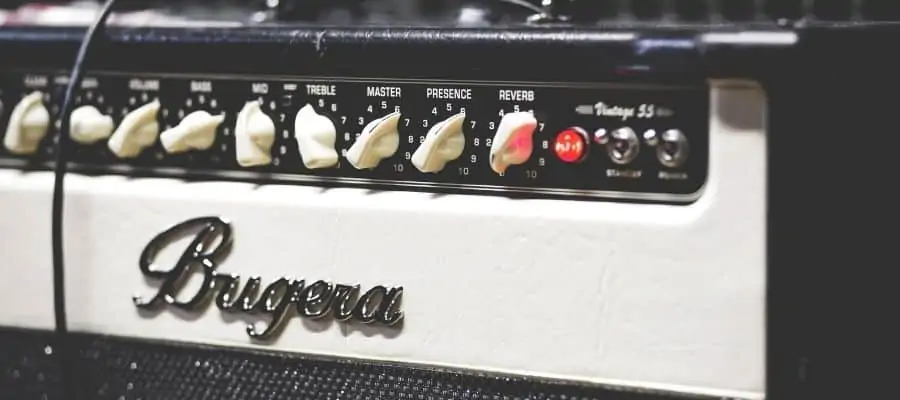
Before I go any further, you need to understand basic amplifier anatomy. Now, when you pluck a string on the guitar, it will vibrate. These vibrations will then create disturbance in the magnetic field of the pickup.
Most pickups have magnets inside, and these magnets create a magnetic field. Around the poles, there is a thin copper wire wrapped around. As a result, the coils will induce electromotive force which will generate an electric current.
Now, this current is quite small, and that’s why we need amplifiers. Amplifiers are used to increase the signal coming from the guitar to allow us to hear it through the speakers.
So, what’s inside the amplifier? There are three main parts of the amplifier – the preamp, power amp, and speaker.
The preamplifier is used to enhance the signal coming from the guitar, and usually, players will shape it using the EQ and gain. The idea is to get the signal that’s high enough so it can drive the power amp.
After that, the signal will go through the power amp, which will further increase it to power the speaker. Finally, the speaker will allow us to hear the sound coming from the guitar.
Now, the main difference between solid-state and tube amps is in the technology used to create the amplifier. Solid-state amps will use transistors, while tube amps will use valves or tubes.
It is worth mentioning that you can always find hybrid amps that have a couple of tubes in the preamp section of the amplifier. If you want to learn more about how amps work, check out the article about amps.
If you want to learn more about guitar amps, you can check out my post How Do Guitar Amps Work? Simply Explained, Easy To Get
Do Amplifiers Wear Out?
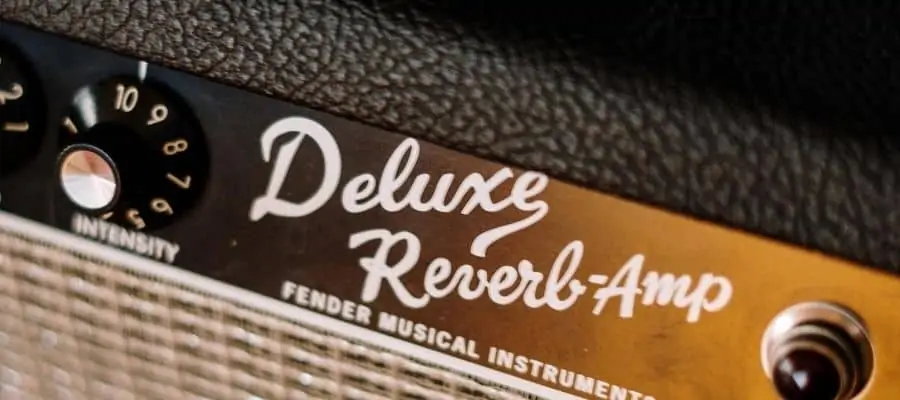
The amplifier is just a combination of many components, and those components do wear out. As a result, you could say that amplifiers wear out.
One of the first things that may break are capacitors, especially capacitors in the power supply. The reason why this might happen is higher temperature and stress. Since amplifiers are designed to be used, there is nothing you could do to prevent this except take care of your equipment and avoid high temperatures.
The easiest way to deal with “dried out” capacitors is to replace them. Fortunately, changing capacitors in the amp is inexpensive, and even if it happens you won’t need to spend a fortune replacing them.
Secondly, transistors in the output may also cause you problems. Transistors can wear out if you continue using them beyond their ratings (and even near their max). Speakers will also have an impact on the transistor’s lifespan.
But even if you decide to replace all problematic capacitors, transistors, and rectifiers, it is still a part of normal maintenance that you might need to do after a couple of years.
All of this applies to solid-state amplifiers, of course. If you have a tube amp, then valves are the components that will wear out over time. However, replacing valves is similar to replacing strings on your guitar, and you will need to do it if you want your amp to remain in good shape.
With high-quality components, your amp will be able to last for quite a while.
How Long Can A Speaker Last?
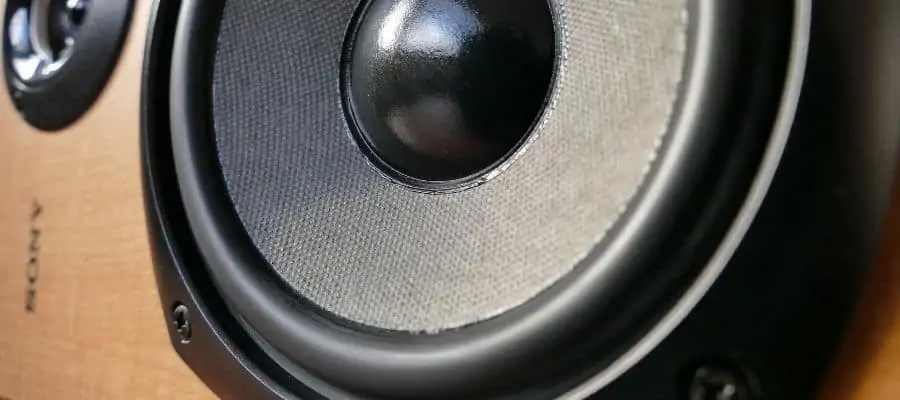
As with any other part of the equipment, your speakers will last longer if you take care of them. Playing too loud will put stress on them and will lower their lifespan.
But if you have a high-quality speaker, it is possible for it to last 40 or 50 years. Naturally, if you take care of it and do regular maintenance. Low-quality speakers will last a lot shorter, and you should expect it to survive around 10 years if you use it daily.
Now, the main problem is loud music. But you need to understand that by loud, I don’t mean loud for you but for your speaker. If you have a high-quality speaker that’s small (below 10 W), a volume that’s normal for you might be too much for your speaker.
So even if you desire to blast loud heavy metal through your speakers, you should find something that can take the stress. As long as you are not cranking your volume all the way to the max, you should be safe.
Finally, when it comes to maintenance, you won’t need to do regular monthly or even annual checkups. Speakers of the amplifiers are a lot more durable, and you should check if everything is good every couple of years.
How Long Does A Preamp Last
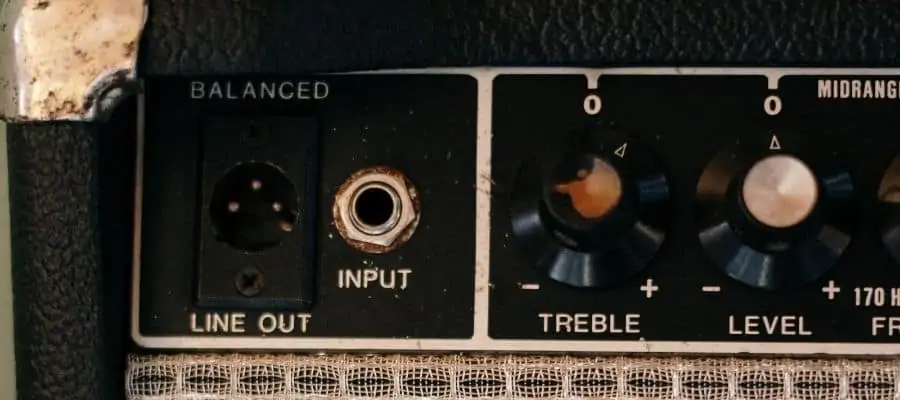
There are many factors that will determine how long your preamp would last. Firstly, whether it is a solid-state or tube preamp. Secondly, the quality of components inside, and finally, proper care and the ways you use it.
Tubes or valves in preamp will usually last 2 or 3 years. Of course, this applies only if you are using your amp regularly. If you play it only a couple of times per week or month, the valves will last significantly longer.
I should also mention that tubes can break similarly to light bulbs. If this happens, you will need to change them at once if you plan on using your amp. In general, preamp tubes will still last longer than valves in the power amplifier.
Solid-state preamps, on the other hand, can go a lot longer without any repairs or problems. If the components are good, then you can use it for decades even. Depending on the amount of time you spend playing, you might need to replace some parts. This way, it can last you 30 or even 50 years.
As I already mentioned, the main problem with preamps is capacitors. However, you can still find amplifiers that are decades old and are still in perfect condition.
How Long Do Amplifier Capacitors Last?
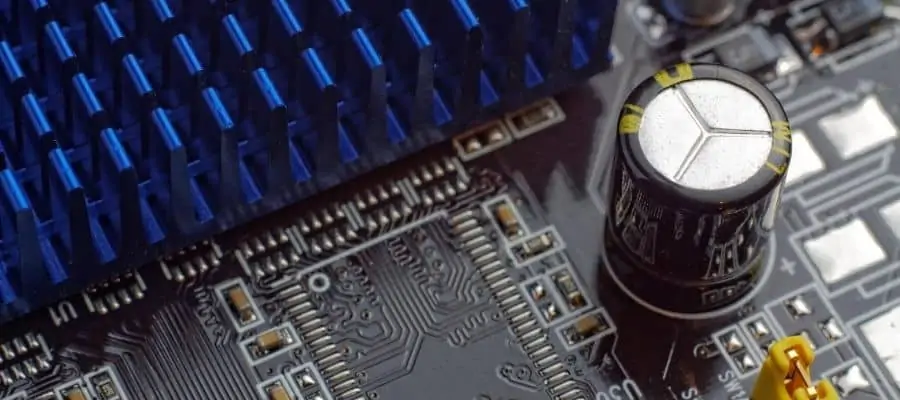
Capacitors used in amplifiers are not so different from other capacitors, and (in theory) can last forever. But the main problem is, of course, the human factor which is impossible to predict.
If you blast your amplifier on max or even plug a bass guitar into the regular amp, it might get destroyed quite fast. Especially if it’s a low-end amplifier.
Usually, the capacitors that are problematic are electrolytic ones, and they certainly have a lifespan. You should replace them every 10 or 20 years, and there is a high chance that your amp will sound as good as new.
Of course, if there are no issues with your amp or the sound, then you should not change a thing. Probably the best thing about amps is that you can easily tell if something is wrong.
If the sound is different or if there is no sound at all, then you should consider taking your amp to the service.
Is It Bad To Leave An Amp On All The Time?

Interestingly, leaving the amp on all the time might be a good idea in the end. At least in theory. Whenever you turn on an electronic device, it will take a small piece of thrashing. Turning electronics on and off can destroy it.
Usually, a regular light bulb will “die” when you turn on the light. It is not often that it gets broken for no reason. Similarly, the amplifier will be a lot better if it’s plugged in all the time.
Of course, capacitors will last a lot longer if the amp is turned off, but what’s the point of it. Turning your amp on once a day is not a problem at all. If you feel like turning it off whenever you don’t play is normal.
But you should avoid doing it a couple of times per day to prolong its life.
The main problem with this is, of course, your electricity bill. This is undoubtedly wasteful, and many players dislike the idea of leaving their amps on if they are not using it.
Furthermore, if you have active pickups, the battery will run out if you leave your guitar plugged in. But besides batteries and electricity, there is no harm in leaving your amp on all the time. You can always leave your amp on if you are playing daily and turn it off if you are away for a couple of days.
if you are wondering whether you should leave all the pedals and guitar plugged in, you can check out my post Is It Bad To Leave The Guitar, Pedals, Amp Plugged In After Practice?
Is It OK To Leave A Tube Amp On?
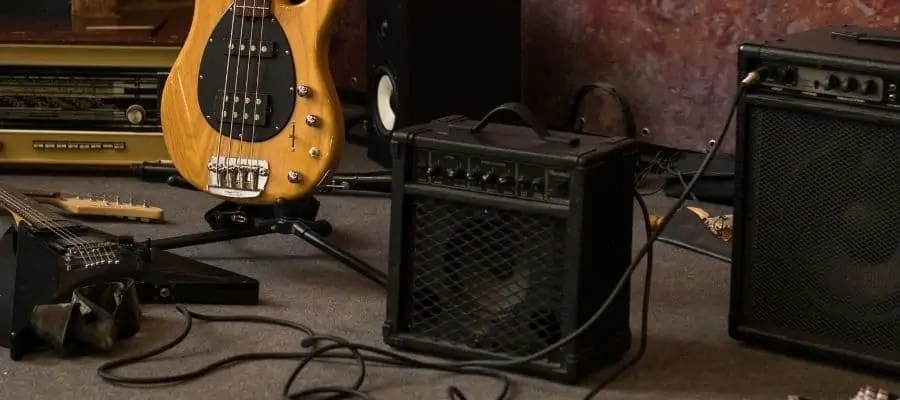
The main problem with tubes is heat. And heat is the enemy of electronics. If your amp has good ventilation, then leaving it on is not a problem. If your amp has a standby mode, you should avoid leaving it there for a long time.
While standby is a great thing, never leave it like that if you don’t plan to play the guitar. The best-case scenario is one of the capacitors will burst, however, the problem can be a lot more serious.
Tubes are a lot more fragile than the solid-state amps, and leaving it too long can fry the tubes. Moreover, you still might want to avoid high bills and paying for electricity for no reason.
The best idea would be to take the middle ground. If you are playing for ten or twenty minutes and having a break after each session, then simply leave the amp on to avoid stress on the tubes and components.
On the other hand, if you don’t plan on playing it for a couple of days, just turn it off to avoid overheating the tubes.
Summary
There are many factors that can impact your amplifier’s lifespan. Firstly, you should ask yourself whether it is a solid-state or tube amp. Solid-state amplifiers are a lot more durable and can last for decades.
Not saying that tube amps are useless, of course. Valves can be quite durable as well, but you might need to change them after a while.
How long the amp will last mostly depends on the amount of time you spend playing, and whether you are taking care of your equipment. With proper care, any amp can last for decades without any issues.

Recent Posts
When learning new songs have you noticed that some of the chord sequences sound really good? But when you tried to come up with your own chord sequence, or as we call it chord progression, you found...
Some guitarists insist on buying an expensive amplifier with their electric guitar. They assume that this is a must for every type of guitarist out there. However, in some situations, this isn’t...

